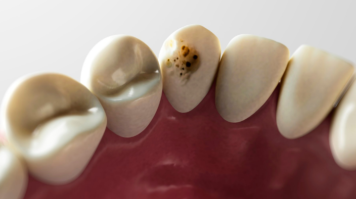Dental Decay Analysis
Dental decay analysis involves a thorough examination of the teeth to identify and diagnose any signs of decay or cavities. This analysis is typically performed during routine dental check-ups to assess the overall health of the teeth and gums. A dentist may use various diagnostic tools, such as X-rays and visual inspections, to determine the extent of decay and recommend appropriate treatment options. Early detection and treatment of dental decay can help prevent further damage and preserve natural teeth for as long as possible.

There are several factors contribute to the development of dental decay, such as:
- Poor oral hygiene and not brushing and flossing regularly
- Eating a diet high in sugar and carbohydrates
- Consuming acidic foods and drinks, which can weaken tooth enamel
- A dry mouth or reduced saliva production can lead to an increase in bacteria
- Genetics and family history of dental decay
- Chronic illnesses or conditions that affect oral health, such as diabetes
- Certain medications can cause dry mouth or decrease saliva production
- Tooth structure or alignment issues, making it harder to clean teeth properly
- Lack of fluoride in the water or dental products, which can strengthen teeth and prevent decay
If there's anything you'd like to know more about, just let us know - we're always happy to provide additional information
Fill the details will get back to you shortly...

Dental decay analysis is a procedure that dentists use to identify and assess the extent of decay or damage in teeth.
Dental decay analysis is necessary to identify and treat tooth decay early before it progresses and causes further damage or tooth loss.
Signs of dental decay may include tooth sensitivity, pain when biting or chewing, visible holes or cavities in the teeth, and discoloration or dark spots on the teeth.
Dental decay analysis may involve an oral exam, X-rays, and other diagnostic tests to evaluate the extent of decay or damage in the teeth.
After dental decay analysis, the dentist will create a treatment plan based on the severity of the decay or damage in the teeth. Treatment may involve fillings, root canals, or other procedures to restore the health and function of the teeth.
Preventive measures for dental decay include regular dental check-ups and cleanings, brushing and flossing regularly, avoiding sugary or acidic foods and drinks, and using fluoride toothpaste or mouthwash.
As dental decay analysis involves diagnosing and treating tooth decay, post-treatment care is crucial to ensure the success of the procedure and prevent further decay. Here are some post-treatment care tips for dental decay analysis:
- Follow the dentist's instructions on brushing and flossing to maintain good oral hygiene.
- Avoid consuming sugary or acidic foods and drinks that can contribute to tooth decay.
- Consider using fluoride toothpaste or mouthwash to strengthen teeth and prevent decay.
- Attend regular dental check-ups to monitor the progress of the decay and prevent future issues.
- Use any prescribed medication, such as antibiotics or painkillers, as directed by the dentist.
- Report any unusual symptoms or pain to the dentist immediately to address any potential complications.
By following these post-treatment care tips, patients can help ensure the success of their dental decay analysis procedure and maintain good oral health in the long term.

Working Hours
Monday - Saturday : 10:30 AM - 7:00 PM
Thursday: Holiday
Sunday: 10:30 AM - 1:00 PM
Call Us
+91 91081 24151
+91 99001 14151
Mail Us
happytohelp@vatsandparam.com